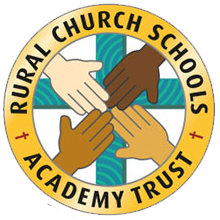A St Oswald's Mathematician
We have made quite dramatic changes to the way maths is taught at St Oswald’s CE Primary over the last few months.
Following extensive pedagogical research about teaching mathematics, we were particularly inspired by the approach of Ban Har Yeap and his focus on all children being ‘mathematicians’, with a solid conceptual understanding, rather than children who learn mathematical procedures.
We want our pupils to be confident mathematicians, who experience the full richness of an exciting and varied maths curriculum. The children learn in a fun and practical way which ensures they have a concrete understanding of concepts before moving on. Our approach to teaching maths enables children to work collaboratively, communicate their ideas clearly and problem solve effectively.
We use the National Curriculum as well as Singapore Maths to support our teaching and learning. These aims and objectives are taught across the school in daily maths lessons. Children work in mixed ability classes with daily discrete teaching of mathematics and also apply mathematical skills through a topic-based approach. Lessons are scaffolded to support struggling learners and rich, sophisticated problems are set to challenge advanced learners.
We believe that where possible, lesson objectives should be taught in a real life, practical context. Maths should be engaging and resources are available in all the classes for children to support children to visualise their learning.
We aim to build pupils' understanding of mathematical terms and symbols steadily and systematically through the school. We provide opportunities for pupils to talk mathematically and to communicate ideas on paper, in pictures, using written algorithms, with charts /diagrams etc. We appreciate that mathematical English may have different meanings from ordinary English and highlight/explain those differences as appropriate (e.g. digit, volume, difference).
We are now using the ‘Maths No Problem’ Singapore text books and interactive resources to plan and teach our maths lessons. We aim to introduce the children to maths through the use of concrete, pictorial, abstract methods to give children a deeper understanding of how mathematics works.
The only way to achieve mastery is to build upon a solid foundation of conceptual understanding and procedural fluency. To ensure a deep level of understanding, it is necessary to move through the curriculum at a different pace to the method used in previous years.
The teaching of mathematics in the Foundation Stage consists of daily maths workshops that focus on specific areas of the subject. These sessions focus on counting, using number names in the correct order and recognising numbers in the environment. The children learn through a range of practical contexts using images, objects, stories, rhymes and songs to engage and promote the importance of number. The children are introduced to the language of ‘more or less’ and start to recognise simple shapes from everyday objects. They begin to develop early problem-solving skills to encourage them to use maths outside of the classroom. In Reception, Maths teaching is based on the EYFS curriculum and supported by the use of White Rose 'Mastery Maths' resources.
Key Stage 1 and 2 pupils will spend much longer on certain key areas, such as place value and the four operations (+-X ./.) to fully embed the concept before moving on, rather than how they were historically taught by spending a fortnight on each area, each term.
We explicitly teach each topic once throughout the year but these areas of maths are met continuously through our representations and lead in stories in other maths lessons. Therefore, nothing is truly taught in isolation.
The children are provided with feedback every single lesson through our RAG rating system. We keep track of which children are able to access or move beyond the task and also those who need extra support on a daily basis to ensure that they are all given the opportunity to make good progress through extra intervention sessions and small group work.
Children complete review and revision sections in their Maths No Problem workbooks each time the reach the end of a topic. We carry out White Rose end of unit tests for each year group and two, half yearly Maths no Problem tests. We may also use PUMA test at the end of each term during the transition. We also keep skills sharp through regular low stakes class-based tests.
The following videos explain how Maths No Problem supports pupils' mathemtacial development in more detail:
Fluency and Times Tables:
We teach maths fluency and times tables both in and outside the maths lesson for an extra 10 minutes a day during reistration (challenge time). The focus of this is to make sure there are the building blocks of mental methods and quick recall of number facts to enable the children to then tackle the more problem solving and reasoning questions within lessons.
Times Tables Expectations:
A list of the sequence in which we teach times tables at St. Oswald's is as follows:
Year 2 - 2,3,5,10
Year 3 - 2,3,5,10,4,8,
Year 4 - 2,5,10,4,8,3,6, 11, 12,7
Year 5&6 - All of the above with revision / emebedding and inverse operations (division) as well as square numbers.
End of Year Maths Expectations:
There are files attached to this page which show the relevent nd of year expectations for maths for each year group.
We also use various practical resources such as Numicon to support our maths teaching. This resource set helps our children to make mathematical connections and to move from practical number activities to abstract calculations easily.
Here is a link to the Numicon webpage; you can access some free resources via the link.
https://global.oup.com/education/content/primary/teaching-support/pages/numicon/?region=uk
Homework
We include practical application of mathematics in our 'Take Away Homework' so that children can choose to engage in a meaningful task which challenges them to apply their skills.
We expected children to practise times tables each week from Year 1 (x1,x2,x5,x10) to Year 6 (up to x12). Teacher's will regualry assess the children's knowledge of times tables and their ability to apply this knowledge flexilbly (and the inverse).
Mathletics is an online resource purchased by school to allow the children to access up to date maths activities to support their learning at home. Parents can access the portal via their child's password to support their learning using the most up to date methods.
Here is a useful link below which explains the recent research project showing the positive impact that Mathletics has on the attainment of children in their maths tests at Primary School:








